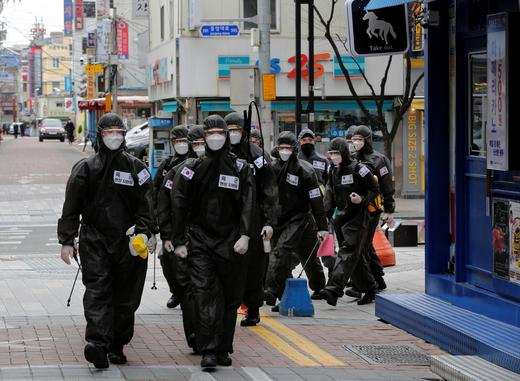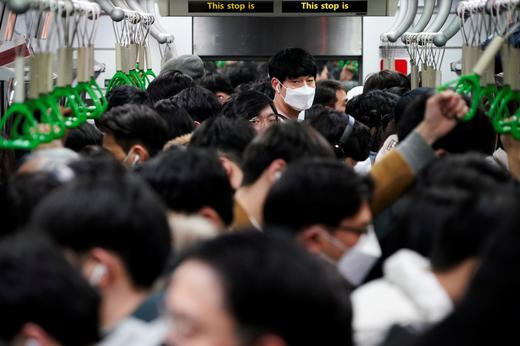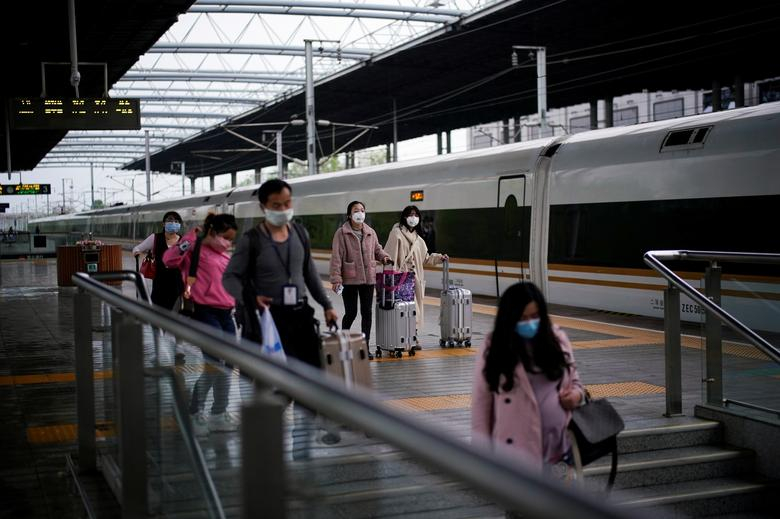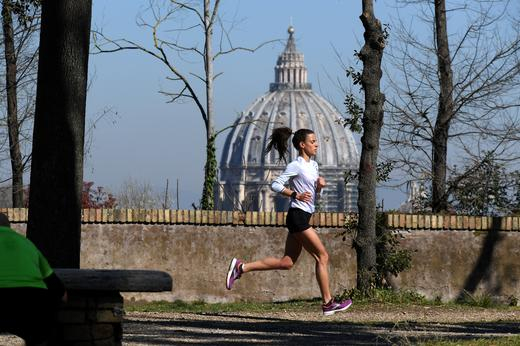As countries in the West are scrambling to contain the coronavirus, some are looking to the East to see if there are lessons to be drawn.
There are clear signs that show East Asian countries are recovering. Daily new cases in South Korea dropped to less than 100 from nearly 1,000 just a few weeks ago. Japan has reported 1,387 infections as of March 27. Compared with many countries' exponential growth, Japan has faced a surprisingly linear growth in cases.
In the former epicenter of the pandemic, China's Hubei Province, travel restrictions are gradually being lifted, business operations are resuming and residents are returning to normal life.
"Strong actions taken by the government certainly play a role," Chen Chengcheng, lecturer at Beijing Information Science and Technology University, who researches social welfare systems in East Asia, told CGTN.
Among measures taken by the government, aggressive testing, strict quarantine rules and social-distancing are strategies that are considered critical to stemming the spread of the coronavirus.

South Korean soldiers in protective gear make their way while they disinfect buildings downtown, March 17, 2020. /Reuters
South Korean soldiers in protective gear make their way while they disinfect buildings downtown, March 17, 2020. /Reuters
South Korea leads the world in early testing that enabled it to quickly isolate and treat patients. It pioneered the drive-through testing clinics, serving thousands of people every day and took only a few hours for results to come in. As of March 26, the country had conducted 357,896 tests, among a population of 51 million, with its per capita testing more than five times that of the U.S.
Both China and South Korea benefited from a fast-track regulatory approval system for testing kits. South Korea started developing test kits in late January when the country reported less than 10 infections. In China, around the same time, testing kits from seven companies entered the fast-track approval process, and the time required for regulatory approval is reduced to a mere four days in some cases.
It is not just a matter of public health policy, enforcement of those policies in East Asian countries is also much stronger.
Social-distancing is practiced rigorously in China and South Korea. Chen cites the discipline of South Koreans in following advice from health authorities as one factor. "The government has strong authority and trust from its people," said Chen.

A man wearing a mask as a preventive measure against the coronavirus rides on a train in Seoul, South Korea, March 5, 2020. /Reuters
A man wearing a mask as a preventive measure against the coronavirus rides on a train in Seoul, South Korea, March 5, 2020. /Reuters
Kim Ganglip, South Korea's vice health minister, said in an interview with journalists that two core values are critical to the country's battle against coronavirus, one is that public participation must be secured through openness and transparency, second is respecting creative thinking and the use of cutting-edge technology.
The country sent out prompt alerts about the movements of people who have tested positive based on tracking phone location data. For those who are under self-quarantine, they must also sign up to an app that allows health authorities to check their whereabouts to ensure compliance.
Similar measures are seen in China where people are assigned a health code of one of three colors based on their recent travel history and health record. Those marked green are given a QR code to present at public transportation hubs for free passage, while those marked yellow or red would mandate self-quarantine.
As China's Hubei Province lifts travel restrictions, residents leaving the province are also required to present a green health code to certify their health status. A similar health code system to facilitate students going back to school has also been launched.

Passengers wearing face masks travel with their belongings at a railway station in Xianning of Hubei Province, March 25, 2020. /Reuters
Passengers wearing face masks travel with their belongings at a railway station in Xianning of Hubei Province, March 25, 2020. /Reuters
The curious case is Japan. Aside from the initial period which saw a botched response to handling the Diamond Princess cruise ship, the country did not experience a surge in confirmed cases overnight. Compared to China and South Korea, early testing and social distancing in Japan were practiced at a much smaller scale.
Part of Japan's seeming resistance to infection come from measures common in the culture, said Dr. Tomoya Saito, director of the department of health crisis management at Japan's National Institute of Public Health, in an interview with the New York Times. People in Japan are much more likely to wear masks in public spaces, to have frequent hand-washing and bowing instead of shaking hands, he explained.
"The strong sense of collectivism in East Asian countries played to their advantage when it comes to the fight against coronavirus," said Chen from Beijing Information Science and Technology University. A strong state tradition also enabled governments to allocate resources more efficiently at the initial stage of the outbreak when medical resources were strained, she added.
Several countries in the West are following the model set by East Asian countries. Countries with their own growing outbreaks, ranging from Italy, Spain, to the U.S. have all imposed similar quarantine measures and urged people to implement social-distancing, but a significant section of the population are less willing to accept the restrictions.

A person runs in front of St. Peter's Basilica in Rome during the lockdown imposed nationwide by the Italian government, March 15, 2020. /Reuters
A person runs in front of St. Peter's Basilica in Rome during the lockdown imposed nationwide by the Italian government, March 15, 2020. /Reuters
Extensive contact tracing, based on the collection of location data, has received pushback from privacy advocates in Europe and the U.S., while Google and Facebook are reportedly in talks with the U.S. federal government on sharing aggregated anonymous data to combat coronavirus. But how that can be pursued in a way that preserves the privacy of users is still an open question.
The head of the World Health Organization, Tedros Adhanom Ghebreyesus, has hailed some Asian countries' efforts in containing the virus, urging countries to "apply the lessons learned in Korea and elsewhere, and adapt them to the local context."
But in order for any containment measure to be effective, it requires cooperation from the citizens. As Dr. Deborah Birx, coordinator for the White House's coronavirus task force, warned in a White House press briefing, for people who are moving into bars and other areas of large gathering as they finish work every night, "if we continue with that process, we will fail in containing this virus."